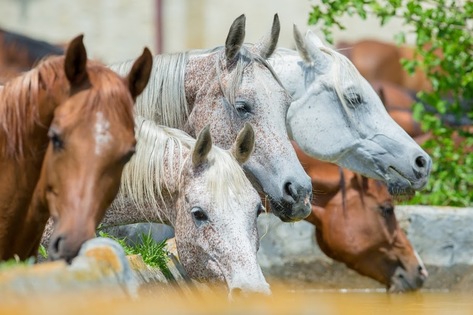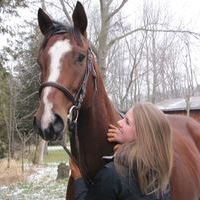
The Most Popular Horse Breeds Of 2019
Equestrian Advice & Guides General Equestrian
Build your business profile for FREE and expose your services to thousands of potential clients!
Create my profile now!
There is a universal understanding that horses are in foal for 11 months but anyone who has stayed up on foal watch knows that nothing is set in stone when it comes to foaling out a mare! For the most part, many broodmares in the Northern Hemisphere are about “halfway” through their gestation, so how do you need to manage your mare this time of year?
Fetal Monitoring
Even though she has been confirmed in foal, your broodmare still requires special maintenance up until she foals. Fetal monitoring throughout your mare’s pregnancy is important to make sure the fetus is developing properly, your mare is healthy, and allows you to hopefully catch any issues early.
FoalPoint helps by…
Ensuring fetal checks are carried out throughout gestation, takes note of key gestational markers, and keeps digital records of these checks for historical reference.
Nutrition
Your mare should consume a nutritionally balanced diet throughout her gestation, but throughout the final months is it more important than ever. Rapid fetal growth means the foal will be demanding more nutrients from the mare and stores will be easily depleted if not replenished. We also want to make sure that your mare has ample milk production come foaling, so we need to account for this increase in demand by making sure she is consuming good forage and possibly increasing grain to ensure appropriate protein, calcium, phosphorus, and vitamin A levels. You mare needs to maintain her weight, support fetal growth and lactation, and have sufficient energy levels. Most feed companies produce a maternity ration which is formulated specifically for broodmares to meet these needs.
FoalPoint helps by…
Giving you the ability to log the current diet of each mare’s diet, allowing everyone involved in her care to be aware of feed changes throughout her gestation.
Vaccinations
Consulting your veterinarian on a vaccination schedule should be something you do as soon as you know your mare is in foal. Having this information ahead of time is a good idea especially because we all know how busy a breeder’s schedule can be. This way, you can increase preparedness and reduce the chance of any devastating events occurring. Your mare should receive her Pneumabort-K+1b vaccine at 5,7, and 9 months to protect her against equine herpes virus and Rhinopneumonitis. Pneumabort-K+1b increases antibodies against EHV but most importantly, greatly reduces the risk of abortion by contracting Rhinovirus. A month before foaling, your mare should also receive a vaccination booster for Tetanus, Eastern and Western Encephalomyelitis, and Influenza. Foals are born without immunization but receive it passively through colostrum. This booster will make sure your mares body creates enough antibodies to protect both her and her newborn foal.
FoalPoint helps by…
Scheduling and keeping vaccination records! Set reminders for each of your vaccines receive notifications to your phone, and upon vaccinating, keep digital records for each mare.
Breeding is an all-around investment and there is still work to be done in the months between a positive pregnancy check and foaling. You can track your mare throughout her gestation by making a profile for her on your FoalPoint account. Staying informed and organized is your best bet to have a healthy mare and foal in the spring, visit www.foalpoint.com to ask us more!

